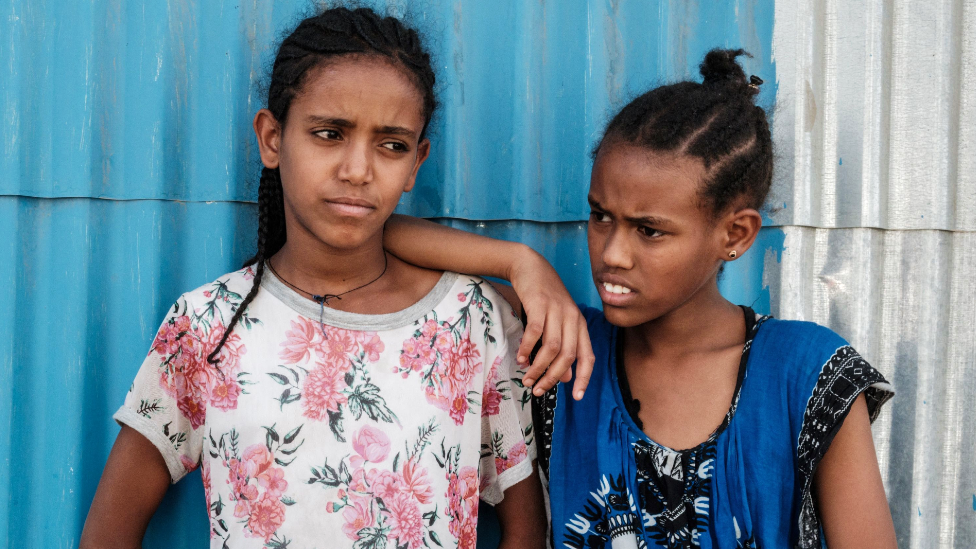Tigray crisis: Britons urged to leave Ethiopia over fears conflict may escalate
- Published
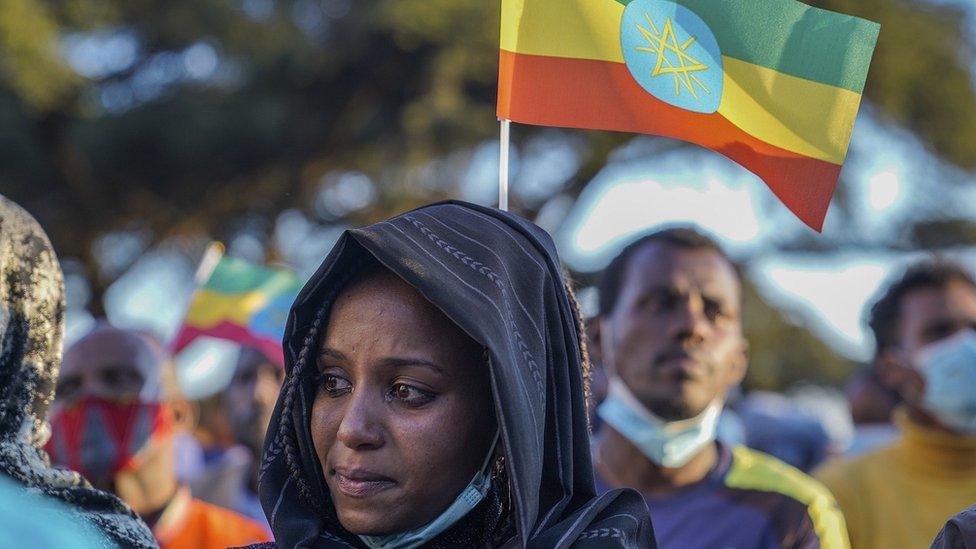
Ethiopia marked the one year anniversary of the conflict at an event earlier this month
British nationals have been urged to leave Ethiopia amid fears a conflict there is worsening.
The UK Government is also advising against all travel to the country.
It says the year-long fighting between the Ethiopian government and rebel Tigray forces could escalate quickly and with little warning.
It is unclear how many Britons are in the country, but officials suggest the number wishing to leave would be in the hundreds.
There is a flurry of diplomacy underway to try to end the violence that has caused thousands of deaths, the BBC's diplomatic correspondent James Landale says.
Rebel forces have made advances and there are fears they could reach the capital Addis Ababa.
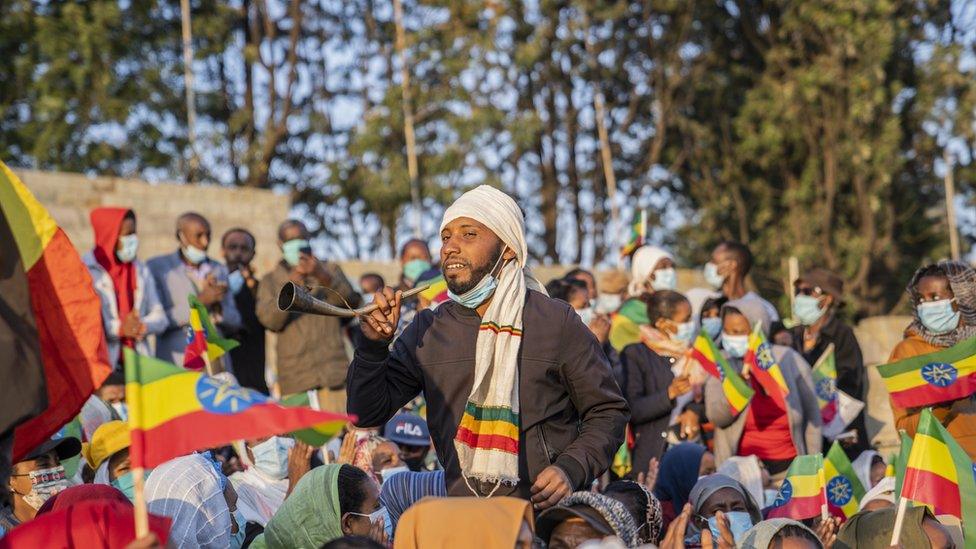
Many showed their support for the government at a rally in Addis Ababa earlier in November
The Foreign, Commonwealth & Development Office (FCDO) said, external in a statement that it was likely to become more difficult to leave Ethiopia in the coming days, and advised Britons to leave the country "while commercial options are still available".
It added: "In the event of deterioration in the political or security situation, the British Embassy may be limited in the assistance that it can provide. Do not rely on the FCDO being able to evacuate you in an emergency."
Advice against travel to anywhere in Ethiopia has also been issued - except for Addis Ababa Bole International Airport, which remains open for connecting flights.
The UN has warned that Ethiopia is at a risk of descending into a widening civil war if the fighting in the northern region of Tigray does not stop.
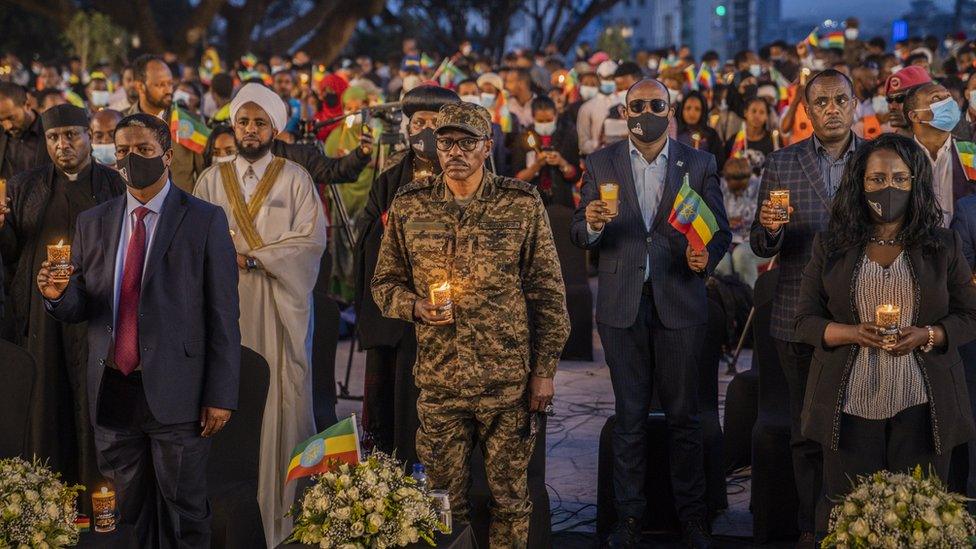
Leaders from military, government and civil society gathered in Addis Ababa to mark the one year anniversary of the conflict.
The conflict began on 4 November last year, when Ethiopian Prime Minister Abiy Ahmed ordered a military offensive against forces in the northern region of Tigray.
He said he did so in response to an attack on a military base housing government troops there.
The escalation came after months of feuding between Mr Abiy's government and leaders of Tigray's dominant political party.
For almost three decades, the party was at the centre of power, before it was sidelined by Mr Abiy, who took office in 2018 after anti-government protests.
Mr Abiy pursued reforms, but when Tigray resisted, the political crisis erupted into violence.
Last week the government asked residents of Addis Ababa to mobilise and protect their neighbourhoods as rebels advanced towards the capital.
Related topics
- Published25 October 2021

- Published4 November 2021
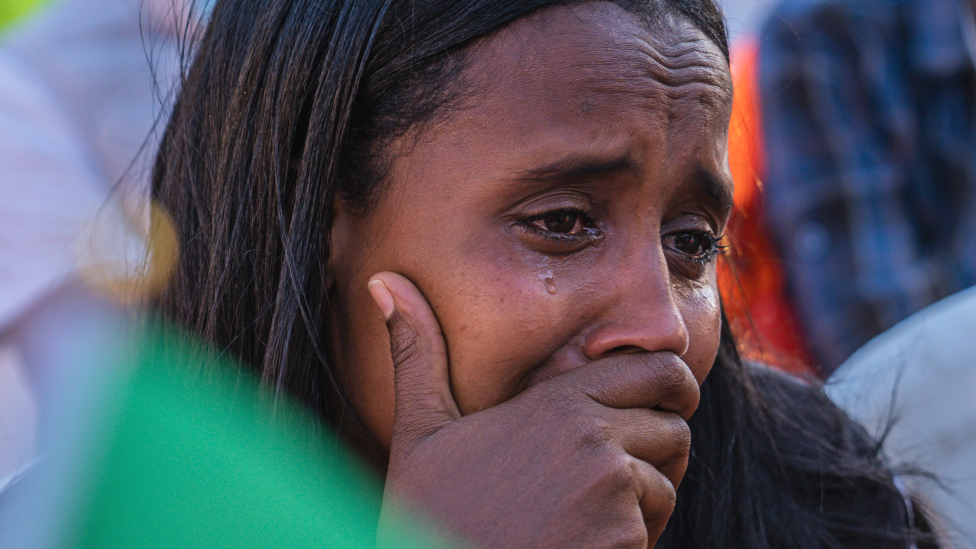
- Published29 June 2021
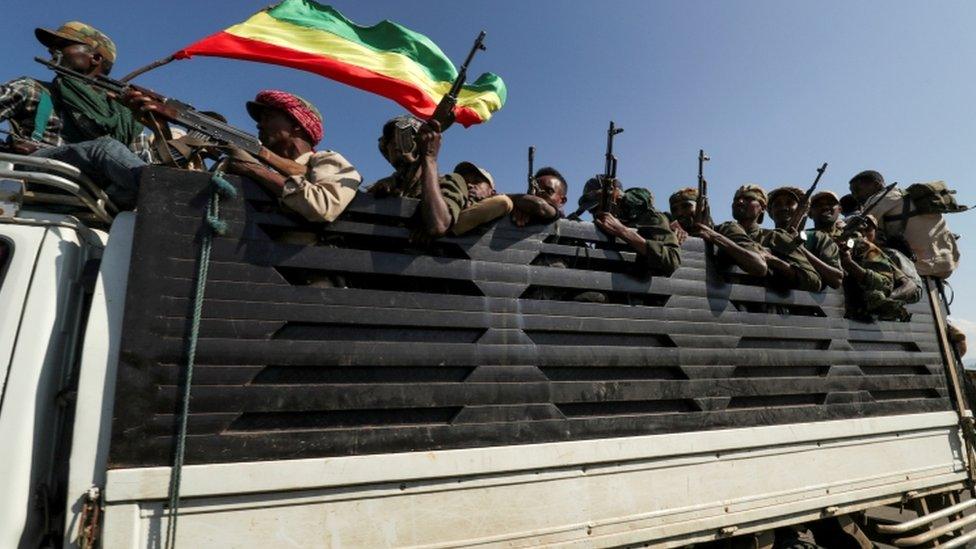
- Published16 October 2021
